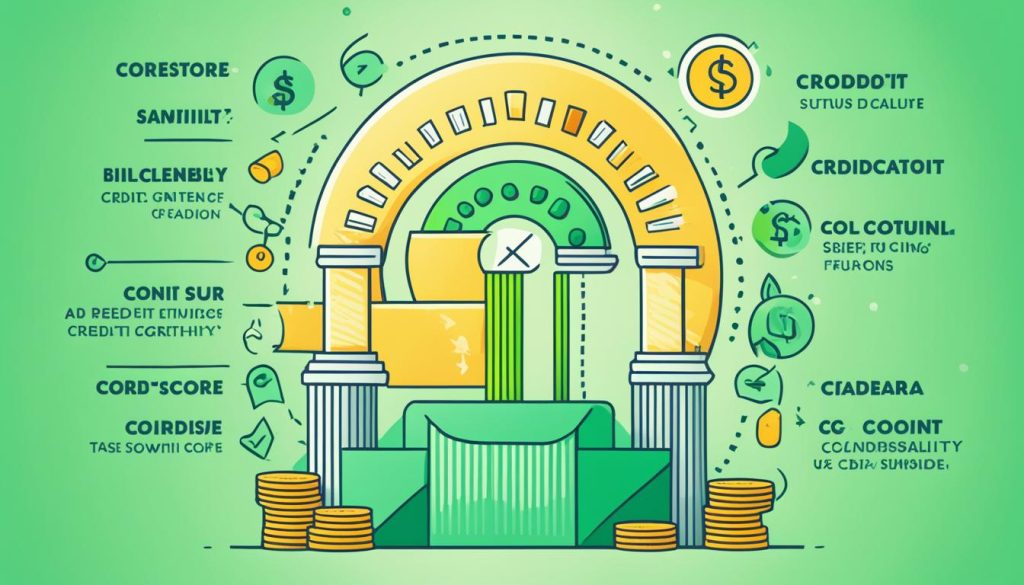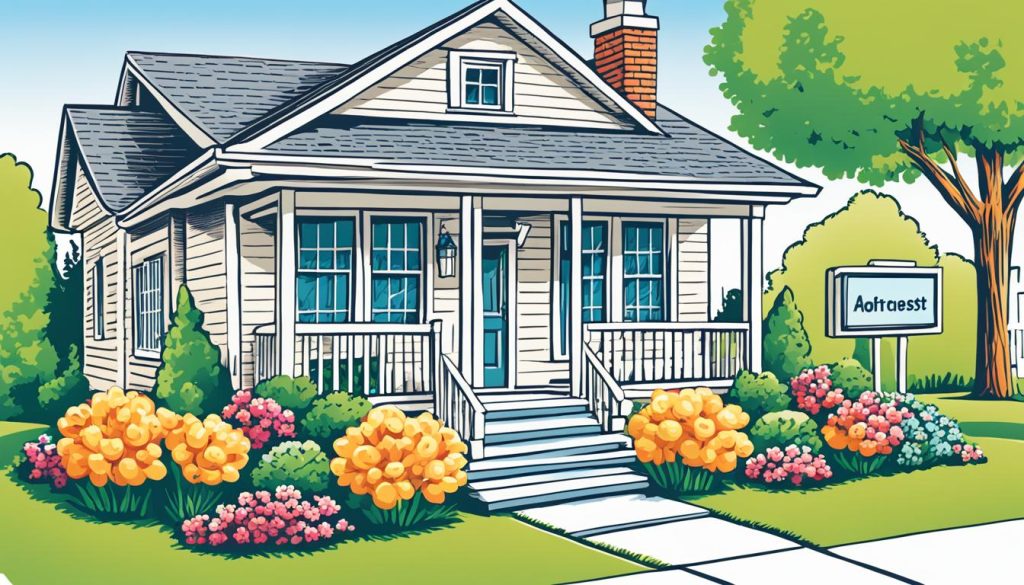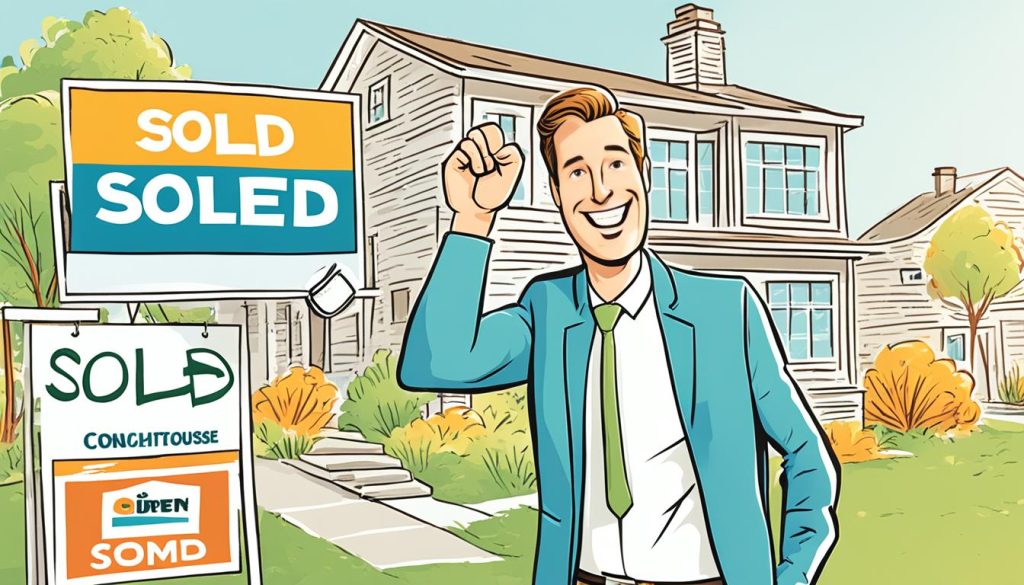Buying a home is a big step, both financially and emotionally. It’s key to prepare well, starting a year before you buy. In 2017, people spent about $19,884 on housing, which was 30 percent of their budgets1. By Q1 2019, the homeownership rate in the U.S. was 64.2%, down from 69.2% in 20041.
Before you start buying, think about your job, the costs of owning versus renting, and how long you’ll stay put. It’s important to consider these things carefully.
Improving your credit, figuring out what you can afford, and understanding all the costs are crucial steps. The median credit score for new mortgages in Q3 2018 was 758, showing how important good credit is1. In 2016, homeowners paid an average of $3,296 in property taxes, with a tax rate of 1.16 percent1. It’s also smart to stay in your home for at least five years to make back your investment and get ready for selling1.
Key Takeaways
- Understand the true cost of homeownership, including housing expenses, taxes, and maintenance.
- Evaluate your job stability and future plans to ensure sustainable homeownership.
- Build a strong credit history and improve your credit score to secure favorable mortgage terms.
- Develop a budget and savings plan to save for a down payment and closing costs.
- Explore first-time homebuyer programs and down payment assistance options.
Understanding the Homeownership Process
Becoming a homeowner is a big step that requires a lot of money and effort2. It’s key to know what to expect with homebuying, mortgage payments, and upkeep costs. Buyers should talk to lenders, real estate experts, and housing counselors to get a clear picture of what owning a home means.
Why Homeownership Matters
Many still see owning a home as the American dream, even if fewer people are doing it. It can offer stability and help you build wealth. But, renting might be cheaper in some cases. Buyers should think about their job, lifestyle, and other factors to see if owning a home is right for them.
Setting Expectations for Sustainable Homeownership
Homeowners have to pay for property taxes, insurance, utilities, and repairs on top of the mortgage2. These costs can quickly take up a big part of your budget, sometimes 30% or more3. Buyers should use online tools and talk to financial advisors to figure out if they can really afford a home.
Understanding Homeowner Needs and True Cost of Homeownership
Owning a home isn’t right for everyone. Buyers should think about their own needs and finances to make sure they can sustain homeownership3. Habitat for Humanity of the Charlotte Region offers a program that teaches about budgeting, building credit, and planning for retirement to help families make smart choices.
It’s important to have realistic expectations and know the real costs of owning a home, like maintenance and other expenses2. By working with lenders, real estate pros, and counselors, buyers can make better decisions and get ready for the responsibilities of homeownership324.
Building a Strong Financial Foundation
Getting ready for homeownership starts with a solid financial base. A good credit score is key for getting a mortgage, affecting the interest rate and terms you can get5. Check your credit report early to fix any mistakes and work on improving your score. Paying bills on time, lowering your debt, and avoiding new credit can also help boost your score5.
Improving Your Credit Score
Boosting your credit score is vital for getting good mortgage terms. First, review your credit report for errors5. Then, pay bills on time, cut down your credit card debt, and limit new credit applications. With effort and patience, you can improve your credit score before buying a home.
Budgeting and Saving for a Down Payment
Saving for a down payment is a big challenge for many. Aim for at least 20% of the home’s price to avoid extra insurance and get the best rates5. But, options like FHA loans and down payment help can make it easier5. It’s important to have a solid budget and save regularly before buying a home.
Debt Management Strategies
Managing debt well is crucial for getting ready for homeownership. Paying off high-interest debts, like credit cards, can better your debt-to-income ratio and improve your mortgage chances5. Using debt consolidation, balance transfers, and paying more each month can lessen your debt and help you get better loan terms5.
Improving your credit score, saving for a down payment, and managing debt will help you build a strong financial base. This will support you in your journey to becoming a homeowner.
“A good credit score is a key factor in securing the best possible mortgage terms. Lenders rely heavily on this metric to assess risk and determine loan eligibility.” – Financial Advisor, John Smith6
| Expense Category | Recommended Percentage of Income |
|---|---|
| Essential Expenses | ~60%7 |
| Savings/Investments | 20% or more7 |
| Discretionary Expenses | ~20%7 |
Follow these tips and plan your finances well. This will set you up for a successful and stable homeownership journey.
How to Financially Plan for Homeownership
Figuring out what you can afford for a home is key in buying one8. Experts say you should spend no more than 28% of your monthly income on a mortgage8. Don’t forget to include costs like moving, furniture, paint, and appliances in your budget8.
Determining Home Affordability
An online home affordability calculator can be a big help. It looks at your income, debt, and other monthly bills to give you a budget8. But remember, owning a home costs more than just the mortgage. You’ll need to think about property taxes, insurance, and upkeep too. It’s wise to keep your housing costs under 30% of your income for a stable life8.
Exploring Mortgage Options and Loan Pre-Approval
After figuring out what you can afford, look into mortgage options and get pre-approved for a loan9. You’ll need to talk to a lender about your finances, credit, and how much you can put down9. It’s smart to check out different loans like conventional, FHA, VA, and USDA to see which one suits you best9. Getting a pre-approval letter can also make you stand out in a crowded market9.
Utilizing Down Payment Assistance Programs
Saving for a down payment can be tough for many, especially first-time buyers or those with lower incomes10. Luckily, there are programs like grants, loans, and savings matches to help10. These can cover the difference between the down payment needed and what you can save10. It’s a good idea to look into these programs to see if you qualify and improve your chances of buying a home1089.
Navigating the Home Buying Process
Buying a home is exciting but complex for first-time buyers11. You’ll need to consider closing costs, which are 2% to 5% of the home’s price11. These costs include fees for the lender, appraisals, title insurance, and more11. Don’t forget about ongoing expenses like property taxes, insurance, and maintenance.
Working with real estate pros makes buying a home smoother11. They guide you through the market, find homes that fit your budget, and help with negotiations11. It’s also smart to connect with lenders and housing counselors for a smooth process.
Understanding Closing Costs and Additional Expenses
Closing costs are a big part of buying a home, affecting your budget11. Conventional loans need a 5% to 20% down payment, and you might pay PMI if it’s less11. Closing costs are about 3% of the home’s price, covering various fees11. For second homes, you’ll need a higher credit score and down payment11.
Mortgage payments include principal, interest, taxes, insurance, and sometimes PMI11. Your debt-to-income ratio is important for getting a mortgage, aiming for under 36%11. Interest rates depend on your credit score, loan length, and lender policies11. Rates are better for primary homes than for investment or rental properties11.
Working with Real Estate Professionals
Real estate pros can make buying a home easier11. They know the market, help find the right home, and assist with negotiations11. Connecting with lenders and counselors also helps make the process smoother11.
The seller pays the commission for both agents in real estate deals11. Earnest money, 1% to 2% of the home price, shows the buyer’s commitment and goes towards the down payment11.
Knowing the costs and working with pros helps buyers confidently navigate the process111213.
| Mortgage Type | Down Payment Requirements | Credit Score Considerations |
|---|---|---|
| Conventional Loan | 5% – 20% down payment, with possible PMI if less than 20% | Credit score requirements vary by lender |
| FHA Loan | As low as 3.5% down payment | Minimum credit score of 580 |
| VA Loan | No down payment required | Minimum credit score of 580 |
| USDA Loan | No down payment required | Credit score requirements vary by lender |
“Working with a real estate professional can make all the difference in navigating the complexities of the home buying process. Their expertise and guidance can help ensure a smooth and successful transaction.”
Understanding costs and working with pros helps buyers confidently navigate the home buying process111213.
Conclusion
Planning for first-time homebuyer, mortgage planning, and sustainable homeownership is a big task. It needs careful thought and getting ready. Knowing the real costs of owning a home, like tax benefits14, building equity14, and staying financially stable14, helps buyers make smart choices. These choices should match their financial goals and dreams.
Building a solid financial base is key. This means improving your credit score, saving for a down payment15, and managing your debts16. Looking into different mortgage options, getting pre-approved15, and using down payment help can make buying a home easier.
By planning well, whether you’re buying your first home or not, you can boost your chances of successful homeownership. This leads to long-term financial security and freedom16. The main thing is to put your financial goals first. Think about how buying a house fits into your plans for your family’s future.
FAQ
Why is it important to financially plan for homeownership?
What steps should I take to build a strong financial foundation for homeownership?
How can I determine how much home I can afford?
What additional expenses should I be prepared for when buying a home?
How can I work with real estate professionals to navigate the home buying process?
Source Links
- Ultimate Guide to Preparing for Homeownership | MMI
- The Home Buying Process: What to Expect When Buying a Home
- Understanding the Link Between Financial Literacy and Successful Homeownership – Habitat for Humanity of the Charlotte Region
- Home Buying 101: Your Roadmap to Homeownership
- Build a Solid Financial Foundation in 5 Steps | How to Build a Strong Financial Foundation
- 29-5437 Building a Strong Financial Foundation
- 4 Steps to Building a Solid Financial Foundation
- The Essential Guide to Creating a Homebuying Budget
- From here to homeowner: A roadmap to help you plan
- How To Save for a House: A Step-by-Step Guide
- 5 financial steps for home buyers
- How To Buy A House In 2024: Step-By-Step
- Buying A House In 2024: A Step-By-Step Guide | Bankrate
- Financial Benefits of Homeownership: Beyond the Mortgage | Bank of Hillsboro
- Prepare Financially for Homeownership In 5 Steps – LaSalle Mortgage
- Where Should Buying a House Fit in Your Financial Priorities?



